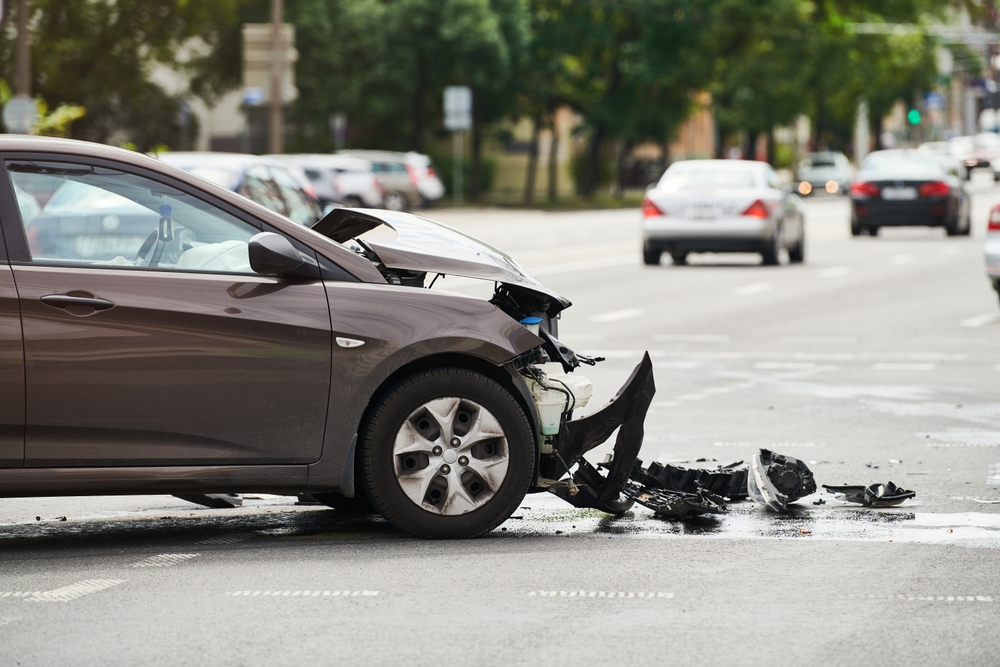
Leaving The Scene Of An Accident In Alabama: A Lawyer’s Guide
Experiencing a car accident can be one of the most unsettling events in a person’s life, but the situation becomes even more stressful when the hit-and-run driver decides to leave the scene of the accident. In Alabama, as in every state, the law requires all individuals involved in a car accident to stay at the scene to exchange information and ensure that anyone injured receives necessary medical attention. Despite these laws, Alabama faces a significant number of hit-and-run incidents each year, leaving victims in a state of confusion and uncertainty about their next steps.
According to a report by the American Automobile Association (AAA), the trend of hit-and-run accidents has been on the rise nationally, with Alabama experiencing its own share of these incidents. In 2016, Alabama reported 17 fatalities due to hit-and-run accidents. While this number represents a decrease from the previous year, it underscores the ongoing challenge of addressing and preventing these crimes. Victims of such accidents are often left feeling frustrated, angry, and unsure about how to navigate the aftermath of the incident.
This guide aims to provide victims of hit-and-run accidents in Alabama with essential information on how to deal with the immediate aftermath of the accident, understand the legal landscape, and explore avenues for seeking compensation and justice. Whether the accident resulted in property damage, injuries, or, tragically, fatalities, it’s crucial for victims to know their rights, the steps they can take to protect themselves, and how an experienced car accident attorney can help.
A Legal Overview of Hit-and-Run Accidents
In the state of Alabama, the law is clear: leaving the scene of an accident without fulfilling specific duties is a serious offense. This section delves into the legal requirements and penalties associated with hit-and-run accidents, offering victims a clear understanding of their rights and the legal framework that governs these incidents.
Alabama’s Legal Requirements
Under Alabama Code 32-10, all individuals involved in a motor vehicle accident have the following obligations:
- Remain at the Scene: Drivers must stay at the accident site until they have provided their name, address, driver’s license information, vehicle registration, and insurance details to other involved parties or law enforcement officers.
- Assist the Injured: If the accident results in injuries, drivers are required to offer reasonable assistance. This includes calling for medical help or transporting the injured to a medical facility if necessary.
- Report the Accident: Accidents must be reported to the nearest police station, sheriff’s office, or highway patrol, especially if they result in injury, death, or significant property damage.
Failing to meet these requirements can lead to severe legal consequences, emphasizing the gravity of hit-and-run law offenses in Alabama.
Penalties for Leaving the Scene
Criminal charges for an Alabama hit-and-run vary based on the severity of the incident:
- Class A Misdemeanor: If the accident results in property damage but no injuries, state law says the offender may face up to one year of jail time, a fine of up to $6,000, or both.
- Class C Felony: In cases where the accident causes injury or death, the consequences are more severe, with potential penalties including one to 10 years in prison and fines up to $15,000.
Additional repercussions may include:
- License Revocation: The offender’s driving privileges can be suspended or revoked.
- Probation and Restitution: Courts may impose probation terms and require restitution payments to the victims for damages and losses.
These legal standards and penalties highlight the serious stance Alabama takes against hit-and-run offenses, underlining the importance of adhering to the law and the potential consequences of failing to do so.
Practical Guide For Victims of a Hit-and-Run Accident
If you find yourself a victim of a hit-and-run accident in Alabama, the steps you take immediately afterward can significantly impact your safety, health, and the ability to pursue legal and financial recourse for any pain and suffering. Here’s a clear and detailed guide on what to do right after the incident—and when to call a car accident lawyer.
Immediate Actions After a Hit-and-Run Accident
1. Ensure Safety First
- Move to a Safe Location: If possible, move your vehicle to the side of the road to prevent further accidents and ensure your safety. If moving your vehicle isn’t safe or feasible, turn on your hazard lights to alert passing drivers.
2. Document the Incident
- Gather Information: Try to note as many details as possible about the fleeing vehicle, such as its make, model, color, and any part of the license plate number you can remember. If there are witnesses, ask for their names and contact information.
- Take Photos: Use your phone to take pictures of the scene, including any damage to your vehicle, any visible injuries you sustained, and any relevant road signs or landmarks. These photos can serve as crucial evidence for insurance claims and legal proceedings.
3. Report the Accident
- Contact the Police Immediately: Reporting the accident to the police as soon as possible is critical. A police report serves as an official record of the incident, which is necessary for insurance claims and potential legal action. Provide the police with all the information and evidence you’ve gathered.
4. Seek Medical Attention
- Evaluate Your Health: Even if you don’t think you’ve been injured, it’s important to see a healthcare professional. Some injuries, like whiplash or internal bleeding, might not be immediately apparent.
5. Notify Your Insurance Company
- File a Claim Promptly: Contact your insurance company to report the hit-and-run. Provide them with insurance information, police report number, photos, and witness information. You may want to speak with a lawyer before discussing your claim with an insurance adjuster.
6. Consider Legal Consultation
- Legal Advice: After taking care of your immediate health and safety and reporting the incident, consulting with a personal injury attorney experienced in hit-and-run cases can provide you with guidance on your rights and the next steps to take.
Insurance Considerations
Navigating insurance matters after a hit-and-run crash in Alabama can be complex, but understanding your coverage and rights is crucial for ensuring you receive the compensation you’re entitled to. Here’s a straightforward guide to dealing with insurance after such an incident:
Understanding Your Coverage
- Uninsured Motorist Protection (UM): Uninsured Motorist coverage is crucial in hit-and-run cases. While Alabama law doesn’t require drivers to carry UM coverage, it must be offered by insurers. UM coverage can compensate you for injuries and damages if the at-fault driver is not identified.
- Collision Coverage: This type of insurance covers damage to your vehicle resulting from a collision, regardless of who is at fault. It can be vital in hit-and-run accidents for repairing your vehicle.
- Comprehensive Coverage: While comprehensive insurance primarily covers damages not caused by collisions (like theft or natural disasters), it may provide additional benefits in some hit-and-run scenarios, especially if the incident involved non-collision aspects.
Filing a Claim
- Immediate Reporting: Notify your insurance company of the hit-and-run as soon as possible. Delaying could jeopardize your claim. Provide them with your insurance policy information, the police report, photographs of the scene and damages, and any witness statements you collected.
- Deductibles: Be prepared to pay your deductible. In collision coverage claims, deductibles apply, but you may recover these costs if the at-fault driver is later identified and held responsible.
Dealing with Insurance Adjusters
- Record Keeping: Keep detailed records of all conversations with insurance adjusters, including dates, times, and the substance of your discussions. This documentation can be critical if there are disputes about your claim.
- Right to Fair Treatment: Alabama law requires insurance companies to handle claims fairly and promptly. If you feel your claim is being unjustly denied or undervalued, you may have grounds for a complaint with the Alabama Department of Insurance.
Need Help After a Hit-and-Run Accident in Alabama? Jay Pickering Law Is Ready to Assist
For over 27 years, Jay Pickering Law Firm has stood by the side of those affected by drivers leaving the scene of the accident in Alabama. Our experience in personal injury law has enabled us to support victims through these trying times, offering both legal guidance and compassionate assistance. Whether you’re grappling with the legal repercussions of the accident, struggling with insurance claims, or simply need advice on your next steps, our firm is here to help.
You shouldn’t have to navigate this journey alone. Let Jay Pickering Law Firm guide you through the process, ensuring you understand your rights and the options available to you. Contact us for a 100% free consultation. Our experienced attorney will review the details of your hit-and-run incident, discuss potential avenues for compensation, and develop a tailored strategy to pursue the justice and support you deserve.

Attorney Jay Pickering brings over 27 years of unwavering dedication to personal injury law, with a sharp focus on representing those injured in car, truck, and motorcycle accidents across Alabama. A proud alum of the University of Alabama School of Law, Jay is a member of the Alabama State Bar and the American Bar Association.
